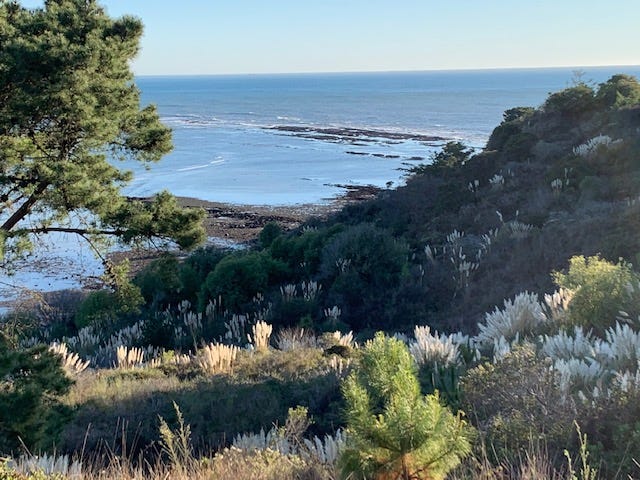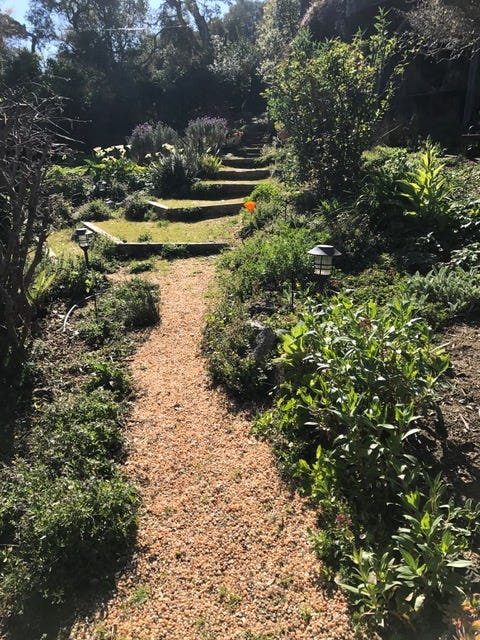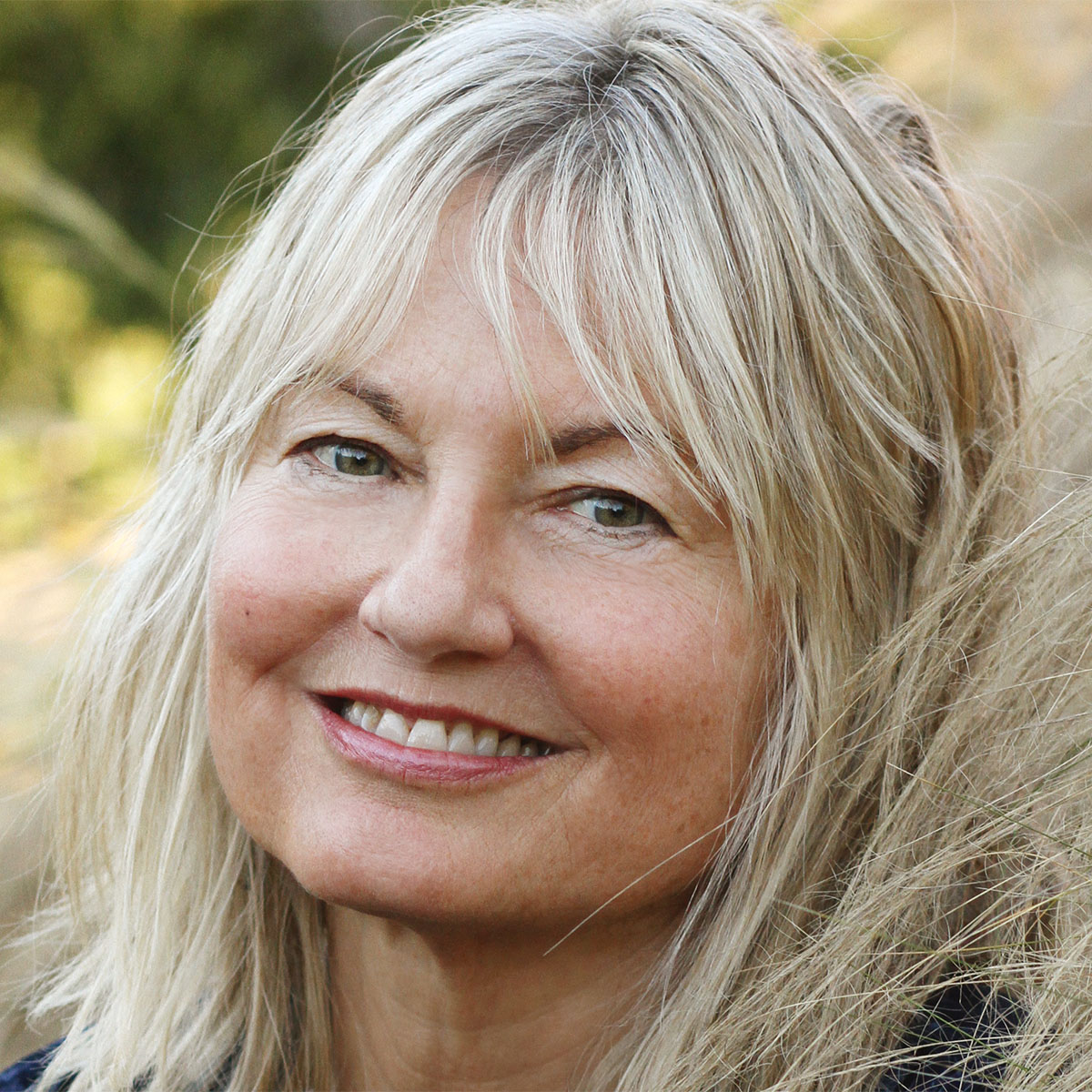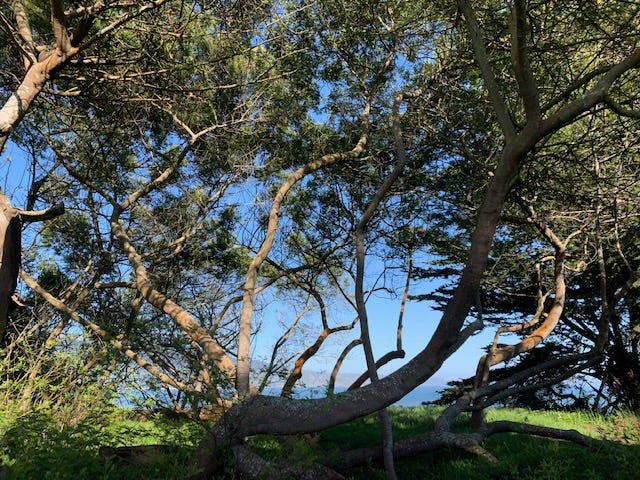THE NATURE OF US
by SABRINA PAGE
MAY 19, 2023
Western cultures experienced what I would call a fall from grace when it lost the subtle sense of interrelatedness with the rest of the natural world, which traditional indigenous cultures have maintained.
These words of Charlene Spretnak, in an interview with Derrick Jensen from his book Listening to the Land, speak to the heart of the matter that I would like to circle around today. I think we are all aware that there has been a fall from grace in our world. We need more love, kindness, and empathy for one another and the earth. We know that we need more connection. I suggest that this feeling of interrelatedness is primarily physical, a primal sensing we have forgotten.
Loneliness, isolation and fear are rampant in our modern world, and yet all around us the earth under our feet is supporting us and the air in her atmosphere effortlessly flowing as our breath. We are inseparable from nature and yet we often miss how she is nourishing us. How do we return to the tangible feeling of nature enfolding us, return to the wholeness of being part of something bigger than us? Derrick Jensen opens his book A Language Older Than Words with these evocative words:
There is a language older by far than words. It is the language of bodies, of body on body, wind on snow, rain on trees, wave on stone. It is the language of dream, gesture, symbol, memory. We have forgotten this language. We do not even remember that it exists.
One full moon night a long time ago on a vision quest in Colorado I climbed to the top of a rocky plateau, a long flat rock out-cropping that extended before me towards the moon. It was a surreal scene. I raced back down to my tent to retrieve my sleeping bag. Upon returning I snuggled myself into a long crevice. Later I wrote the following in my journal along with this drawing below: As I lay under the moon cradled in the arms of a huge mother rock I felt totally supported by the earth, nurtured, comforted and fearless. It felt as if the earth was giving birth to me, very gently. Slowly she rocked me in her arms.

My body can still remember the feeling of being rocked. My body on her body. My intention on that quest had been to feel the earth, to know her. For me it was a birth, the beginning of a bodily felt knowing of our interconnection.
It is the language of bodies.
Body is the intermediary between ourselves and nature. Aliveness and joy, sadness and grief arise from feelings and sensations in the body. The subtle sense of interrelatedness that connects us to the earth and all nature rests on our felt sense of the moment, how our bodies feel in the moment. The inner space of the body is where we register emotions and sensations, and the skin is the semi-porous divide between this inner space and outer space.
For some it is easy to feel the interconnection between inner and outer and how they affect one another. But typically many of us have been drawn out of our bodies by factors such as pain, trauma, religious conditioning, phones and screens. A simple way to experiment is to alternate feeling the space within, and then the space around you, seeing which is more available. Once these two spaces are familiar, try breathing at your skin, experiencing how you can connect inner and outer. If this seems easy explore various parts of your body, the soles of your feet, the inner thighs, the length of your back, feeling the aliveness of exchanging the breath through the skin.
Being present with our bodies and within our bodies is essential to a deeply nourishing life. Presence. Embodied presence. To be embodied is to hold the barrier of our skin lightly, with the awareness that we are a flow – a continuum in which inside our skin and outside are felt in a reciprocal dance. As we deepen our awareness of subtle movements inside we are moved by the caress of the breeze or the flutter of the flower. Nature teaches us how to be more alive to the nuance of another. We are touched and we deepen. This is the beginning of intimacy with all things (this concept from Dogen-Zengi, Zen master in Japan c. 1200-1253).
It is the waters inside us that immediately register these changes in nature. Our blood is stirred by a change in our breath just as wind stirs the waters on a lake. We know we are made up of 65% water, much more when we are young. Water in the form of cellular fluids and blood brings a continual flow of nutrients, chemicals and hormones informing every cell. Live for a few weeks with a wildfire threatening your livelihood or home and you may not be able to sleep, cortisol raging in the bloodstream.
When a phone or screen becomes the intermediary telling us what to pay attention to we become disembodied, out of touch with the living world around us. As seductive as our devices are, they create a separation with nature, consigning us to a virtual world. Yes, online life is almost unavoidable, but with too much time on a computer my mind becomes dull, my thinking circles without resolving, my eyes fixate.
I know that it is essential to my vitality to feel the wind on my skin, the fragrance of flower and tree, and the contours of the earth under my feet. Every few hours. My joy depends on it. Sometimes I have to will myself out the door but once I start moving and responding to the world outside new ideas flood in, and wonder and awe take over as I watch the hawk swoop by. The colors of nature revive my eyes as do the tiny movements in the trees, and taking in larger vistas relaxes both my eyes and body. I feel possibility and belonging, part of something radically more magnificent than myself.
Having lived in different part of the country as well as when traveling, I find there are climates and vistas that deeply inspire me and draw me out the door. Childhood memories of creeks, lakes and oceans inhabit my senses. I grew up near the Atlantic ocean during summers. The scent of the sea, moisture in the air, even being surrounded by fog, all touch me. Being able to look out past the waves and see water for miles on end thrills me.

Each of us is touched by the land in unique ways – a mountain of snow, sandy beach, vast plains, dry desert, or a wildly blooming meadow. Immersion in landscapes you love, feeling beauty and appreciating details create a sense of being part of the earth community. Yet sometimes it is a small city park, a garden plot, or plants growing on the balcony that evoke our feelings. I once lived in Denver where Washington Park was my daily entry into nature. In other homes it has been the plants on my deck or the surrounding gardens that have pulled me outdoors.
Whenever possible, I find feet on the ground sensing the contours of the earth creates a deeper connection. Barefoot even better. And there’s nothing like the place where the sand and waves meet, toes squishing deep into mushy sand to fully ground us.
Especially when barefoot, a current of connection moves through the soles of our feet and revitalizes the body. The way our feet meet the earth is reflected throughout our bodies, mediated through the fluids, a dynamic interplay of earth and water elements. We are both pulled to the center of the earth through the force of gravity as well as lifted by the principle of levity that thrusts upward through the waters of the body.
This alignment is a fundamental reciprocal relationship we can forge with nature. Yet another is our interface with the sun. The full spectrum of light, from infrared in early morning to the UV of midday affects us deeply. Attention to receiving light, both through our eyes and skin, is gaining increasing interest by health professionals questioning the fear of the sun that has dominated the medical world. Our bodies thrive on the fire of the sun at sunrise and sunset, and during the midday as well, more carefully. And the air we breathe is a moment to moment exchange with nature, breathing in oxygen and releasing carbon dioxide to plants and trees. A very simple meditation is to be with a tree and exchange the breath! These ongoing elemental exchanges with nature, largely unconscious at first, open us to the larger world.
A sense of reverence for nature arises over time – and reverence for ourselves as part of nature. Awe and wonder develop through the years by noticing and paying attention. Enveloped in bird song and breezes, warmed by sun or blanketed with fog I move in a field that is never static, this ever changing background fills my day, opens my heart, sometimes saddens me – and interconnects me. The raven caws, quail scurry by, trees sway, songbirds sing, and a sense of kinship develops with the many creatures I pass by. And I learn: watching the bottlebrush tree outside my window I discover that it nourishes bees and butterflies, songbirds and hummingbirds, a vital hub of abundant support.
Breathing it all in, I am filled with the joy, vitality and wildness around me – absorbing the natural beauty and intelligence I see. I have changed, learned to feel more, becoming a more caring person, connecting to the abundance of life. For me this is grace. Nature still exists in grace. It is we humans who separated out – and while we will never experience what indigenous communities before us did, we can once again cherish nature and reclaim our inherent grace and true community.

I will touch on all of this in different ways in the future. Here’s a smooth pebble path I created in a former garden so that I could walk barefoot – hope it inspires you to find ways to interrelate with the earth everyday.
Thanks for joining me here today. My website is https://sabrinapage.com – come explore more through private sessions on zoom or in person.
If you enjoyed this post please share and subscribe. And at least to start I would like to explore the model set forth by Charles Eisenstein, in which everything is accessible and free, the gift economy. And of course if you can subscribe and donate I will be very grateful. I’d love to hear your thoughts and experience.

The Nature of Us – Sabrina Page has an MA in Philosophy, Cosmology, and Consciousness, a background in movement and dance, focused on embodiment. She has been deeply influenced by her connection with nature, shaped by playing in woods and water growing up. Sabrina’s writing explores the earth community, love, body, embodiment, interconnection, our planetary moment, music – and the creativity and possibilities inherent in being human.
